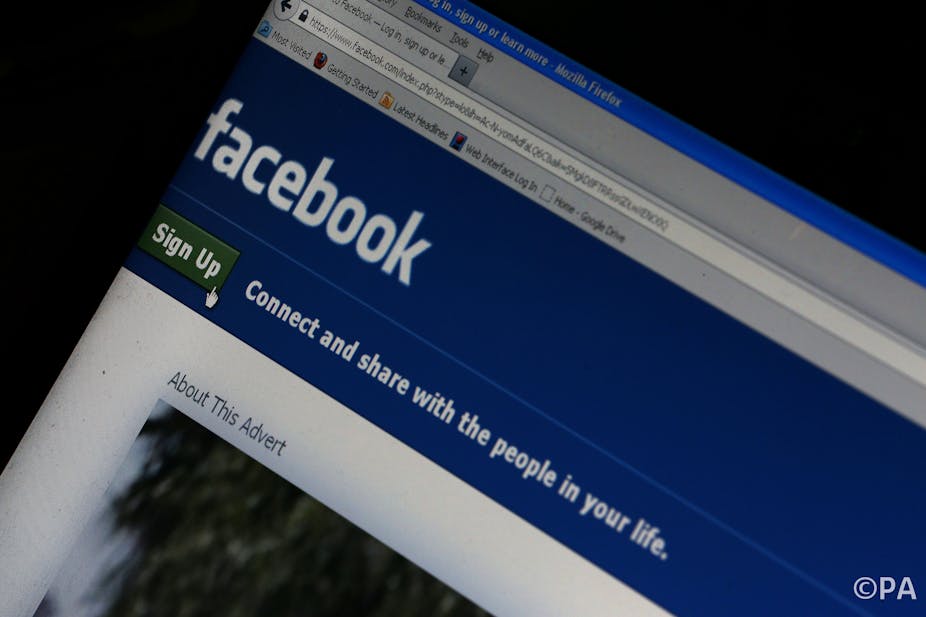The Intelligence and Security Committee (ISC) of Parliament has now released its 191-page report into Lee Rigby’s murder. The report concludes that even though the ISC “discovered a number of errors,” the murder could not have been prevented by the intelligence and security services.
Instead, the blame seems to have been put decisively on Facebook, which one of Rigby’s killers apparently used to discuss “killing a soldier” several months prior to the murder. This despite the fact that the security services were apparently well aware of the killers and their motives, independent of their social media presence.
Michael Adebolajo, the controlling mind in the murderous attack on Fusilier Lee Rigby, was first arrested in 2006 at a protest against Danish cartoons he perceived to be insulting to the prophet Muhammad. By the autumn of 2008, he was on MI5’s radar as having potential connections with al-Qaeda and by 2011 was the object of close surveillance.
Between then and April 2013 – when the intensive surveillance of Adebolajo was cancelled since there was “no indication of a national security concern” – he had multiple encounters with police and security services. A month later, Rigby was brutally murdered.
Counter-claims
Adebolajo claims MI5 attempted to recruit him as an informant – claims the UK government refuses to comment on, citing national security – and accuses MI6 of tacit complicity in alleged beatings and torture threats he received when detained by Kenyan police in 2010. He had travelled to Kenya with the apparent intention of joining extremists in Somalia.
Adebolajo’s partner in the murder, Michael Adebowale, came to MI5’s attention in August 2011 as a result of his interest in online extremist material and the intelligence services were aware of the two’s close connections. They nevertheless eventually considered Adebowale a low-level threat unworthy of their continuing attention.
By detailing various communications problems between police and security services and between the various branches of the intelligence services themselves and the inferences drawn from knowledge of the activities of Lee Rigby’s attackers, the report does a decent job of illustrating that security and intelligence systems are imperfect.
We can never be 100% secure, because these systems and agencies can and do fail – they fail naturally through human and technical and communications errors and they can be made to fail by actors with malign and, in this case, murderous intent.
What seems odd about the report and the ensuing media frenzy, however, is how Facebook has been framed as the single entity that could have prevented the murder.
Paragraph 17 of the report notes:
We have found only one issue which could have been decisive. This was the exchange – not seen until after the attack – between Adebowale and an individual overseas (FOXTROT) in December 2012. In this exchange, Adebowale told FOXTROT that he intended to murder a soldier. Had MI5 had access to this exchange, their investigation into Adebowale would have become a top priority. It is difficult to speculate on the outcome but there is a significant possibility that MI5 would then have been able to prevent the attack.
Paragraphs QQ to VV of the recommendations and conclusions go into this claim in a little more detail, saying: “Adebowale expressed his desire to murder a soldier "in the most explicit and emotive manner.” It then criticises US big tech companies for their lack of cooperation with government on fighting terrorism.
Happy though I usually might be to criticise Facebook or big tech – if more for their own anti-privacy practices than their lack of co-operation in counter-terrorism – it’s a bit of a stretch to suggest a giant beam of enlightenment would have engulfed the security services if Facebook had only shouted loudly enough, “look at this!”.
They were already aware of extreme views expressed by Adebowale on the net – and even Adebolajo, considered the more dangerous of the pair, was providing no continuing indication of a national security concern.
Brazen
For David Cameron and Theresa May to turn the deranged murder of a young soldier by damaged extremists into a political device for rehashing discredited surveillance proposals is unconscionable. It’s also not supported by the report: two members of the ISC have already criticised the notion that their work supports the further expansion of surveillance powers the government is now proposing.
Of course, with an election round the corner, we should hardly be surprised that party managers might be encouraging senior figures to ramp up their “tough on terrorism” rhetoric. The sad thing is to see how the media has uncritically swallowed the “blame Facebook” mantra hook, line and sinker.
Lee Rigby, who dedicated his life to defending the freedoms we enjoy in the UK, deserves better from our political leaders, from our media outlets and frankly, from all of us.

